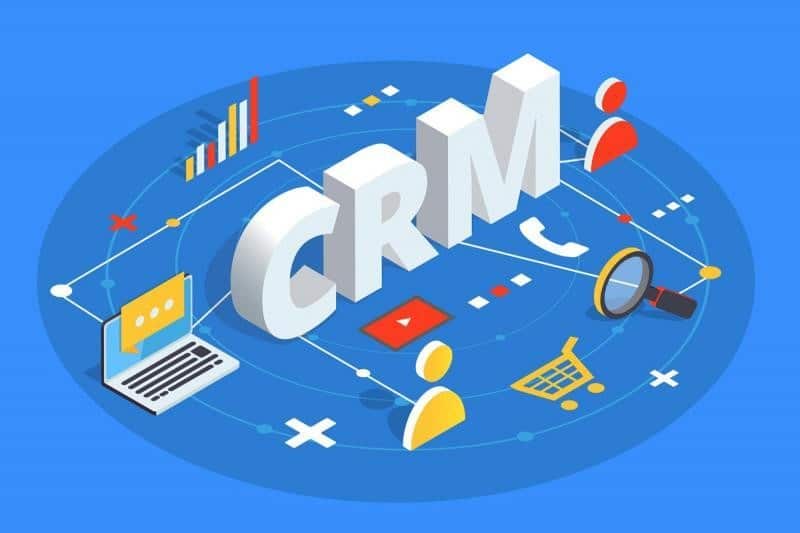The SaaS (Software-as-a-Service) Customer Relationship Management (CRM) market is poised for substantial growth and evolution between 2023 and 2027. This period promises significant advancements driven by technological innovations, changing business needs, and the increasing adoption of cloud-based solutions. Techception’s deep dive into the SaaS CRM market reveals critical trends, challenges, and opportunities that will shape the industry’s future.
Market Growth and Trends
The SaaS CRM market is forecasted to experience robust growth over the next few years. This expansion is fueled by several key factors:
- Increasing Cloud Adoption: Businesses are rapidly moving their operations to the cloud to leverage its scalability, flexibility, and cost-efficiency. SaaS CRM solutions eliminate the need for extensive on-premises infrastructure, reducing overhead costs and facilitating easier updates and maintenance.
- AI and Machine Learning Integration: AI and machine learning are transforming SaaS CRM systems. These technologies enhance data analysis, automate routine tasks, and provide predictive insights, enabling businesses to understand customer behaviors better and personalize their interactions.
- Mobile CRM Solutions: With the rise of remote work and mobile workforces, mobile CRM solutions are becoming indispensable. They allow sales and service teams to access customer data and manage relationships on the go, enhancing productivity and customer satisfaction.
- Enhanced Data Security: As cyber threats evolve, so do the security measures within SaaS CRM platforms. Providers are investing heavily in advanced security protocols to protect sensitive customer data, building greater trust among users.
- Customer Experience Focus: Companies are increasingly recognizing the importance of exceptional customer experiences. SaaS CRM tools are evolving to include features that support seamless, personalized customer journeys across various touchpoints.
Key Players and Competitive Landscape
The SaaS CRM market is highly competitive, with numerous players striving for market share. Leading companies like Salesforce, HubSpot, and Microsoft Dynamics 365 continue to dominate due to their comprehensive solutions and continuous innovation. However, the market is also seeing a rise in niche players who offer specialized functionalities catering to specific industries or business needs.
Salesforce: Often considered the pioneer in the CRM space, Salesforce continues to lead with its robust platform that integrates AI (Einstein) and offers extensive customization options.
HubSpot: Known for its user-friendly interface and all-in-one inbound marketing, sales, and service software, HubSpot appeals particularly to small and medium-sized businesses.
Microsoft Dynamics 365: Leveraging its deep integration with other Microsoft products, Dynamics 365 offers powerful CRM capabilities, especially appealing to enterprises already within the Microsoft ecosystem.
Challenges Ahead
Despite the optimistic outlook, the SaaS CRM market faces several challenges:
- Data Privacy Concerns: With increasing regulations like GDPR and CCPA, SaaS CRM providers must ensure compliance with stringent data privacy laws, which can be complex and costly.
- Integration Issues: Businesses often use multiple software solutions, and integrating SaaS CRM with existing systems can be challenging. Seamless integration capabilities are crucial for widespread adoption.
- Customization Needs: While SaaS solutions offer flexibility, some businesses require extensive customization that out-of-the-box solutions may not fully support. Balancing customization with standardization will be key.
Opportunities for Innovation
The period from 2023 to 2027 presents ample opportunities for innovation within the SaaS CRM market:
- Vertical-Specific Solutions: Developing CRM solutions tailored to specific industries such as healthcare, finance, and retail can provide a competitive edge and address unique industry needs.
- AI-Driven Personalization: Further advancements in AI can lead to more sophisticated personalization, helping businesses deliver hyper-targeted marketing and sales strategies.
- Blockchain for Security: Implementing blockchain technology can enhance data security and transparency, addressing privacy concerns and building greater user trust.
- Augmented Reality (AR) and Virtual Reality (VR): These technologies can revolutionize customer engagement, providing immersive experiences in sales and support processes.
Conclusion
The SaaS CRM market is on a dynamic trajectory, characterized by rapid technological advancements and evolving business demands. Companies that embrace cloud-based CRM solutions stand to gain significantly in terms of efficiency, customer insights, and competitive advantage. By staying ahead of trends and addressing emerging challenges, businesses can harness the full potential of SaaS CRM platforms to drive growth and enhance customer relationships in the coming years.
Stay tuned to Techception for more in-depth analysis and insights into the evolving world of SaaS and CRM technologies.










